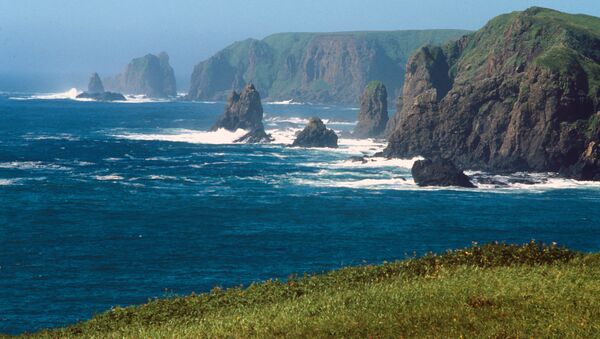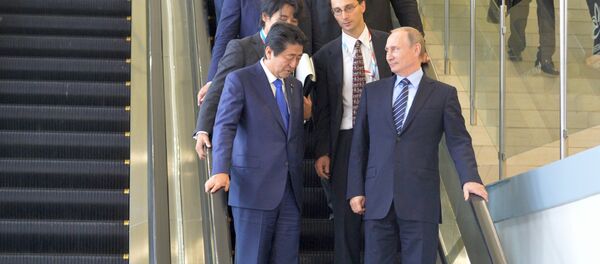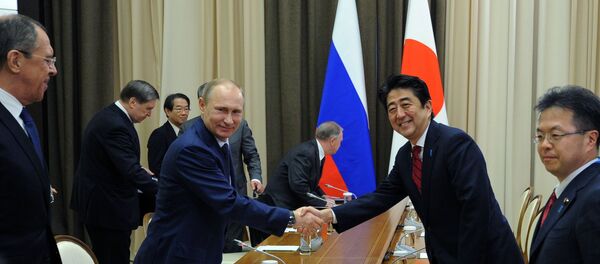Since then, they have remained a bone of contention between Moscow and Tokyo, preventing them from signing a peace treaty to formally end the war. Japan insists that the four southernmost islands should be returned.
Meanwhile, Japanese Prime Minister Shinzo Abe has signaled his determination to hold the upcoming talks with President Putin in such a way that it would already be possible "to put an end to the territorial dispute [within] the current generation."
Russia, Japan closing in on deal over Kuril Islands https://t.co/HMH9D2RyKT via @geopolmonitor
— Nino Brodin (@Orgetorix) 12 декабря 2016 г.
Abe made the statement during a meeting with a group of former residents of the South Kurils from Japan, who gave him a letter to the Russian President in which they asked him to visit the islands, if only once in a while.
In this context, Ardayev quoted Oriental expert Anatoly Koshkin as saying that Abe's statement can hardly be interpreted as Tokyo's drive to make a breakthrough in the negotiating process, especially given the audience whom he met.
Koshkin also said that the Japanese government is unlikely to allow the country's national companies to carry out any economic activity with Russian counterparts on the disputed islands because it would mean a de facto recognition of their being part of Russia.
The latest The Nels Hond Daily! https://t.co/BFujSTnrhi #mashable
— Nels Hond (@nelshond) 8 декабря 2016 г.
"Abe will be unable to change Japan's irreconcilable stance on the matter, for the country's public opinion will not allow him to do so. The overwhelming majority of Japanese insist that all four islands should be returned unconditionally. By the way, Russian opinion polls indicate that already 77 percent of respondents are against returning the islands to Japan as such," Koshkin said.
In contrast, Gevorg Mirzayan, Associate Professor of Finance University in Moscow, believes that Abe will make every effort to reach a compromise during the upcoming talks.
"Such a keynote statement cannot be regarded as mere words, and Shinzo Abe will do his best to arrive at a political accommodation during the negotiations. He will proceed not only from his own political aims, but also from Japan's national interests," Mirzayan said.
He recalled that Vladimir Putin had proposed a formula which first stipulates creating an atmosphere of mutual confidence by developing and establishing bilateral economic relations, and then discussing the territorial issue and the peace treaty.
"This can be considered a sort of road map to resolve the long-term territorial dispute. If Tokyo accepts it as the first step towards the development of the so-called 'northern territories' within the framework of interim solutions, the movement towards the development of cooperation with Russia will really start," Mirzayan pointed out.
Meanwhile, President Putin, who starts his visit to Japan on December 15, said that Russia is ready to consider joint work with Tokyo on the Kuril Islands, with conditions due to be as liberal as possible.
"As regards the Southern Kuril Islands, there are different possible options. We are ready to consider joint efforts on one, two, three, or four islands.The terms are important, but they have to be as liberal as possible," Putin told the Nippon TV channel and the Yomiuri newspaper, as quoted by the Kremlin.
He stressed the need for the Russia-Japan cooperation deals to be "legally binding documents guaranteeing the implementation of our mutual commitments."
Putin also expressed hope that his upcoming visit to Japan would bring more understanding on the issue of a bilateral peace treaty.




